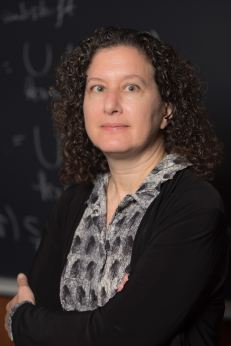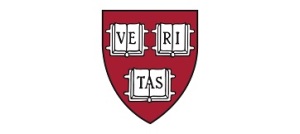[UPDATE] Due to health concerns over the coronavirus pandemic, WIMS will be postponed until next year. We apologize for any inconvenience.
GIIM is proud to host the fifth annual Womxn in Math and Statistics Conference at the Harvard Science Center (1 Oxford Street) on April 18th, 2020.
About
The Harvard Womxn in Math and Statistics (WIMS) Conference is a one-day conference run by Harvard Gender Inclusivity in Math (GIIM), held on Harvard’s campus. WIMS connects women, gender minorities, and allies interested in math and statistics in the Boston area and provides attendees with the opportunity to connect with leading mathematicians working in both academia and industry. All genders are welcome!
Schedule
| 9:00 am
9:30 am 10:00 am |
Check-In
Breakfast Welcome |
Outside of Harvard Science Center Lecture Hall D | |
| 10:05 am | Keynote 1: An Introduction to Schubert Calculus and positivity conjectures |
Professor Rebecca Goldin, George Mason University | Harvard Science Center Hall D |
| 11:10 am | Panel 1: Fostering Inclusivity in Mathematics |
Panelists, TBA | Harvard Science Center Hall D |
| 12:15 – 2:15 pm | Lunch + Breakout Sessions For list of topics, see below. |
||
| 2:15 pm | Keynote 2: Periodicity and Complexity |
Professor Bryna Kra, Northwestern University | Harvard Science Center Hall D |
| 3:20 pm | Snack Break! | Outside of Harvard Science Center Lecture Hall D | |
| 3:45 pm | Panel 2: Careers in Math |
Panelists, TBA | Harvard Science Center Hall D |
| 4:50 pm | Closing | Harvard Science Center Hall D | |
Keynote Speakers
Keynote 1: An Introduction to Schubert Calculus and positivity conjectures (Rebecca Goldin)
Schubert calculus is a modern formulation of enumerative geometry, counting geometric objects such as ‘how many lines intersect four generically placed lines in three-dimensional space?” In this talk, I will share how these questions are posited in terms of the product structure in several different rings associated to flag varieties. I will share how they are applied to the Type-A Peterson variety, a subvariety of the flag variety (which I will define). In recent work, we proved the positivity of Peterson Schubert calculus, resolving a conjecture of Tymoczko and Harada, and found a combinatorially positive formula for the coefficients of the products. Along the way, we discovered an unexpected combinatorial identity of binomial and multinomial coefficients. This is joint work with Brent Gorbutt.
 Rebecca Goldin earned a B.A. from Harvard University, and a Ph.D. in Mathematics from Massachusetts Institute of Technology. She is a professor of mathematical sciences at George Mason University and a Fellow of the American Mathematical Society, while serving as Director of STATS at Sense About Science, USA. Goldin is a leading expert on the use and abuse of statistics in the media, as well as an accomplished mathematician focusing on geometry and related combinatorics. She was the inaugural winner of the Ruth I. Michler Memorial Prize for the Association for Women in Mathematics, an Etta Z. Falconer Lecturer on statistics use in the media, and has had numerous grants awarded from the National Science Foundation for her work in mathematics and statistical communication.
Rebecca Goldin earned a B.A. from Harvard University, and a Ph.D. in Mathematics from Massachusetts Institute of Technology. She is a professor of mathematical sciences at George Mason University and a Fellow of the American Mathematical Society, while serving as Director of STATS at Sense About Science, USA. Goldin is a leading expert on the use and abuse of statistics in the media, as well as an accomplished mathematician focusing on geometry and related combinatorics. She was the inaugural winner of the Ruth I. Michler Memorial Prize for the Association for Women in Mathematics, an Etta Z. Falconer Lecturer on statistics use in the media, and has had numerous grants awarded from the National Science Foundation for her work in mathematics and statistical communication.
Keynote 2: Periodicity and Complexity (Bryna Kra)
The simplest bi-infinite sequences whose entries all either 0 or 1 are the periodic sequences, where a single pattern is concatenated with itself infinitely often. At the opposite extreme are bi-infinite sequences containing every possible configuration of 0’s and 1’s. We will explore how to detect properties of the sequence from these strings, how dynamical systems are used in this study, and what types of properties can be detected. Starting with classical ideas, we will quickly arrive at current research and open questions.
 Bryna Kra is the Sarah Rebecca Roland Professor of Mathematics at Northwestern University. She has won the American Mathematical Society Conant Prize and Centennial Fellowship, and is a fellow of the American Academy of Arts and Sciences and of the American Mathematical Society, and was elected to the National Academy of Sciences in 2019. She has held positions at the Hebrew University of Jerusalem in Israel, the Institute des Hautes Etudes Scientifiques in France, at the University of Michigan, the Ohio State University, and Pennsylvania State University, before joining the faculty at Northwestern University in 2004.
Bryna Kra is the Sarah Rebecca Roland Professor of Mathematics at Northwestern University. She has won the American Mathematical Society Conant Prize and Centennial Fellowship, and is a fellow of the American Academy of Arts and Sciences and of the American Mathematical Society, and was elected to the National Academy of Sciences in 2019. She has held positions at the Hebrew University of Jerusalem in Israel, the Institute des Hautes Etudes Scientifiques in France, at the University of Michigan, the Ohio State University, and Pennsylvania State University, before joining the faculty at Northwestern University in 2004.
Panelists (TBA)
Panel Information
Fostering Inclusivity in Mathematics Panel: Speakers will share their experiences as we discuss the existence of inequities in math academia with special focus on the gender gap, as well as ways to foster greater inclusivity on a personal and institutional level.
Careers in Math Panel: This panel will offer advice and examples to undergraduates about pursuing a career in mathematics and related fields.
Breakout Sessions
(subject to change)
Finding Research Opportunities: The group will discuss questions related to applying to REUs, contacting professors at your department and beyond, choosing research topics, and more.
Applying to Grad School: This group will discuss questions regarding school choice, exams, grades vs. test scores vs. research, and general guidance about the application process.
Careers in Finance: A representative from industry (TBA) will share how experience in math and statistics translates to different careers in finance.
Working Towards Inclusive Communities: This group will discuss ways to foster inclusive communities in math, led by women in Harvard’s math department.
First-Generation Identity in Mathematics/Statistics: This group will be discussing how to navigate first-generation college student identity in the context of mathematics academia, and how to leverage the resources available.
Statistical Literacy in Media: Keynote speaker Professor Rebecca Goldin will be giving a talk about her work as Director of STATS, a collaboration between the American Statistical Association and Sense About Science, USA whose mission is to improve the public debate on how science, quantitative, and mathematical issues are covered in the media.
Quotes from Past Participants
“I think this was a wonderful experience that I hope will continue for many years to come. I hope the word gets out even more and appreciate all the effort gone into making this conference happen! It was amazing talking with all of these other younger women who have similar experiences and goals as I do.”
“Great day! I really enjoyed connecting with other math students in the Boston area and discussing gender inequality issues with leading female figures in the math field. Would definitely attend again next year.”






